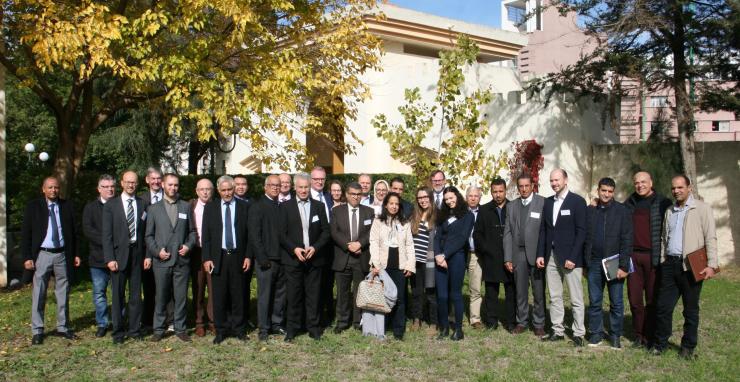

Project launch I-WALAMAR
Agriculture is an important driver of the growing Moroccan economy. In the arid environment close to the Sahara, this development is already having a significant impact on the area’s fragile land and water management systems. The I-WALAMAR project aims to develop innovative agricultural and cycle management techniques to encourage sustainable land and water use.
On 27 November, around 40 German and Moroccan partners from the I-WALAMAR consortium officially launched the project at the University of Moulay Ismail in Meknès region, Morocco, which will serve as the model region for the implementation of the project. The consortium consists of four research institutes and three commercial organisations from Germany, as well as Moroccan research and practice partners working in the fields of agriculture and water management. The goal of the project is to develop and implement practical solutions for the local recycling of residues, preservation of ecosystem services, restoration of severely degraded soils, and optimisation of crop cultivation through innovative research approaches. The consortium will investigate the socio-economic and environmental impact of alternative land and water management techniques, and develop future scenarios. The team will also demonstrate technologies to encourage the responsible use of alternative resources, and optimise more sustainable cultivation methods. They will also use augmented reality technology to show the results of the project, in order to promote their direct use in agricultural and water management practices in the Meknès region.
Click here for the project description (in English) and the official press release (in German).
